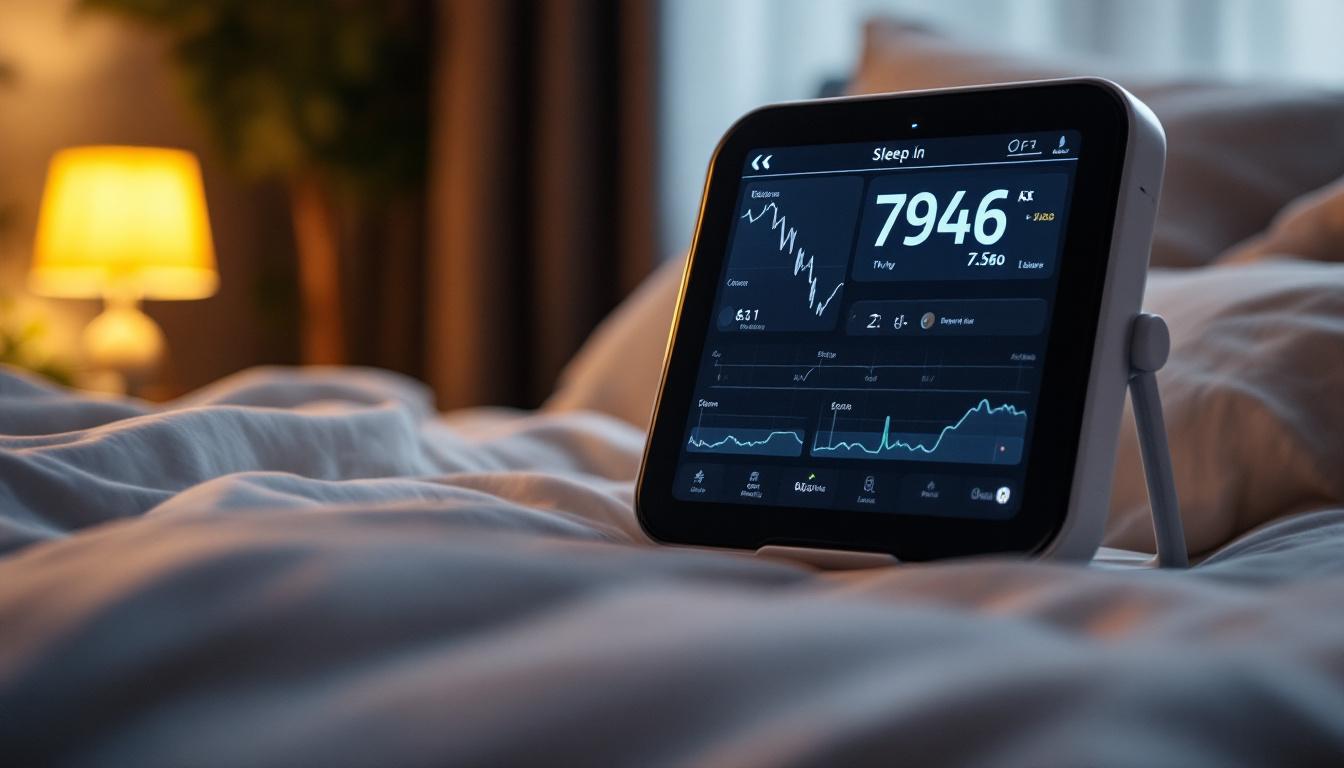Understanding Home Sleep Studies
Home sleep studies, also known as home sleep apnoea tests (HSAT), have gained popularity as a convenient alternative to traditional overnight sleep studies conducted in sleep clinics. These studies are designed to diagnose sleep disorders, particularly obstructive sleep apnoea (OSA), which affects a significant portion of the population. In Canberra, the availability of home sleep studies has made it easier for individuals to assess their sleep health without the discomfort often associated with hospital settings.

By utilising portable monitoring devices, home sleep studies allow patients to undergo testing in the comfort of their own homes. This not only enhances the patient experience but also provides a more accurate representation of their typical sleep patterns. The shift towards home-based testing reflects a broader trend in healthcare, where convenience and patient comfort are increasingly prioritised. Furthermore, the technology used in these studies has advanced significantly, allowing for the monitoring of various parameters such as heart rate, oxygen saturation, and airflow, which are crucial for an accurate diagnosis.
Home sleep study Canberra represent a significant advancement in the diagnosis and management of sleep disorders. By combining comfort, convenience, and accuracy, these studies have transformed the landscape of sleep health in Canberra and beyond. With the ability to conduct testing in a familiar environment, patients are more likely to engage with their sleep health and seek necessary interventions.
The Importance of Sleep Health
Sleep is a fundamental component of overall health and well-being. It plays a critical role in various bodily functions, including cognitive performance, emotional regulation, and physical health. Insufficient or poor-quality sleep can lead to a range of health issues, including obesity, diabetes, cardiovascular diseases, and mental health disorders.
Find more at: Sleep Testing Canberra: What to Expect
Recognising the signs of sleep disorders is essential for timely intervention. Common symptoms include excessive daytime sleepiness, loud snoring, and frequent awakenings during the night. By addressing these issues through a home sleep study, individuals can take proactive steps towards improving their sleep quality and, consequently, their overall health. Additionally, understanding the impact of sleep hygiene practices, such as maintaining a consistent sleep schedule, creating a restful environment, and limiting screen time before bed, can further enhance the effectiveness of the findings from a home sleep study. These lifestyle adjustments, combined with the insights gained from monitoring sleep patterns, empower individuals to make informed decisions about their health and well-being.

How Home Sleep Studies Work
The process of a home sleep study is straightforward and user-friendly. Patients typically receive a portable monitoring device that they wear during sleep. This device records various physiological parameters, such as airflow, oxygen saturation, heart rate, and respiratory effort. The data collected is then analysed by a qualified sleep specialist, who can provide an accurate diagnosis based on the results.
Before the study, patients may receive instructions on how to set up the equipment and what to expect during the night. The simplicity of the process allows individuals to focus on their sleep without the anxiety that often accompanies hospital-based studies.
Equipment Used in Home Sleep Studies
The equipment used in home sleep studies is designed to be non-invasive and easy to use. Commonly, patients are provided with a small device that fits comfortably on their head or wrist, along with sensors that monitor breathing patterns and heart rate. Some devices may also include a nasal cannula to measure airflow and a pulse oximeter to track oxygen levels in the blood.
Advancements in technology have led to the development of compact and user-friendly devices that ensure accurate data collection while minimising discomfort. This technological evolution has made home sleep studies a viable option for many individuals seeking to understand their sleep health.
Interpreting the Results
Once the home sleep study is completed, the collected data is sent to a sleep specialist for analysis. The specialist will evaluate the results to determine whether the patient has sleep apnoea or any other sleep-related disorders. The interpretation of the data is crucial, as it informs the next steps in treatment and management.
In cases where sleep apnoea is diagnosed, the specialist may recommend various treatment options, including lifestyle changes, continuous positive airway pressure (CPAP) therapy, or other interventions tailored to the individual’s needs. Understanding the results of a home sleep study empowers patients to take control of their sleep health and make informed decisions regarding their treatment.
Benefits of Home Sleep Studies in Canberra
The rise of home sleep studies in Canberra offers numerous advantages for patients. These benefits extend beyond mere convenience, impacting the overall effectiveness of sleep disorder diagnosis and management. Read more about management on https://hsa.edu.pk/departments/health-management/
Comfort and Convenience
One of the most significant advantages of home sleep studies is the comfort they provide. Patients can sleep in their own bed, surrounded by familiar surroundings, which can lead to more natural sleep patterns. This comfort can result in more accurate data collection, as patients are less likely to experience the anxiety or discomfort that can occur in a clinical setting.
Additionally, the convenience of home sleep studies eliminates the need for lengthy waiting times often associated with traditional sleep clinics. Patients can schedule their tests at their convenience, making it easier to fit into their busy lives.
Cost-Effectiveness
Home sleep studies are often more cost-effective than traditional sleep studies. The reduced need for extensive medical facilities and personnel translates to lower costs for both healthcare providers and patients. This affordability makes sleep health assessments more accessible to a broader population, encouraging individuals to seek help for their sleep issues.
In a healthcare landscape where costs can be prohibitive, the economic benefits of home sleep studies represent a significant step forward in promoting sleep health awareness and intervention.
Enhanced Access to Care
For residents in Canberra, the availability of home sleep studies enhances access to care, particularly for those living in remote areas or those with mobility challenges. The ability to conduct a sleep study at home eliminates travel barriers, ensuring that more individuals can receive the diagnostic testing they need.
This increased access is particularly vital in a country as vast as Australia, where geographical distance can often hinder timely healthcare delivery. Home sleep studies bridge this gap, allowing for timely diagnosis and intervention.
Who Should Consider a Home Sleep Study?
Home sleep studies are suitable for a wide range of individuals, particularly those who exhibit symptoms of sleep disorders. However, certain populations may particularly benefit from this type of testing.
Individuals with Sleep Apnoea Symptoms
Those who experience symptoms such as loud snoring, gasping for air during sleep, or excessive daytime sleepiness should consider undergoing a home sleep study. These symptoms are often indicative of obstructive sleep apnoea, a condition that can have serious health implications if left untreated. Click here to find more about symptoms.
Identifying and diagnosing sleep apnoea early can lead to effective management strategies, significantly improving quality of life and reducing the risk of associated health complications.
Patients with Mobility Issues
Individuals with mobility challenges or those who find it difficult to travel to a sleep clinic can greatly benefit from home sleep studies. The ability to conduct the test in a familiar and comfortable environment removes the barriers that may prevent them from seeking necessary care.
This inclusivity is essential in ensuring that all individuals, regardless of their circumstances, have the opportunity to assess and improve their sleep health.
Patients Seeking Convenience
For many, the convenience of a home sleep study is a significant factor in their decision to pursue testing. Busy professionals, parents, and those with demanding schedules may find it challenging to allocate time for traditional sleep studies. Home sleep studies offer a practical solution, allowing individuals to prioritise their health without disrupting their daily lives.
By providing a flexible and accessible option, home sleep studies encourage more people to take proactive steps towards better sleep health.
Conclusion: A Step Towards Better Sleep Health
As awareness of sleep disorders continues to grow, the importance of accessible and effective diagnostic options cannot be overstated. Home sleep studies provide a pathway for individuals to understand their sleep patterns and take control of their health, ultimately leading to improved quality of life.
For those experiencing symptoms of sleep disorders, a home sleep study may be the first step towards achieving restful, restorative sleep. Embracing this innovative approach to sleep health can pave the way for a healthier future.

